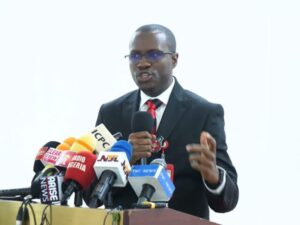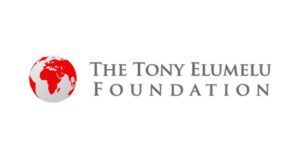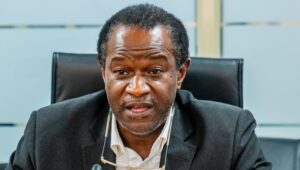Tinubu and the quest to secure Nigeria’s natural resources
By Temitope Ajayi
For many decades, Nigeria’s move towards rapid development and economic growth was impaired by poor revenue despite the country’s abundant natural resources.
The country’s unsavoury economic situation was also compounded by the almost crippling foreign exchange crisis of the last eight years, accentuated by insufficient supply of dollars into the economy. With demand outstripping supply, the fiscal and monetary authorities have been battling to control the declining value of the naira against the US dollars, which has now hit an all-time low of over N1400 to $1 at the parallel market. The local currency, at the official window, oscillates against the dollar between N800 and N950 depending on demand.
While the supply of US dollars has been grossly inadequate, largely because of our import dependency, the increasing demand for the greenback to settle tangible and intangible obligations by businesses; individuals, and the criminal speculation by some Nigerians, continue to exert pressure on the demand side. The volatility of the foreign exchange market has been a source of serious concern for the current managers of the economy who are being assailed by the citizens to rein in the downward spiral.
Amid this unpalatable situation, questions have been asked why a country like Nigeria endowed with vast natural resources in solid minerals, marine economy, forestry, agriculture, and oil among others cannot generate enough foreign exchange. The country is constantly in financial and economic quagmire. In giving answers to the nagging question, many have attributed the decade-long dollar crisis to the monolithic nature of the Nigerian economy that depends, mainly, on oil and gas export to earn foreign exchange. There are those who also posited that the government should put in place deliberate policy actions to diversify the economy. The economic diversification argument may be tenuous because the available datasets show that Nigeria’s economy is highly diversified.
In real terms, the non-oil sector driven by telecommunication, financial services (Banking and Insurance), agriculture, trade, construction, real estate and service industry contributed 94.52 percent to the nation’s Gross Domestic Product in Q3 of year 2023, according to the National Bureau of Statistics (NBS). In comparison, the oil and gas sector contributed the balance of 5.48 percent.
While it is apparent from NBS figures that Nigeria’s economy is well diversified, the source of foreign exchange earnings remains yet undiversified. Over 80 percent of the foreign exchange that comes into the country is from crude oil export, whereas billions of dollars worth of exports in solid minerals, seafood and other forest resources are taken out of the country without record or direct benefit to the Federation account.
To address the problem of natural resources dissipation, illegal exploitation and sabotage of our national economy, President Tinubu at the last meeting of the Federal Executive Council, set up an inter-ministerial committee to draw up plans to maximise the economic potential of the country’s natural resources and secure them from those pillaging them. Members of the committee are Minister of Solid Minerals, Dele Alake, Defence Minister, Abubakar Badaru, and Environment Minister, Balarabe Abass Lawal. Others are Marine and Blue Economy Minister, Adegboyega Oyetola, Interior Minister, Tunji Olubunmi-Ojo, and Minister of State Police Affairs, Imaan Sulaiman-Ibrahim.
At the moment, Nigeria can boast of solid minerals deposits worth $700 billion according to estimates from the Ministry of Solid Minerals, while the Africa Blue Economy Alliance (ABEA), using information from the Nigerian Maritime Administration and Safety Agency (NIMASA), puts the value of the country’s unexplored blue economy at over $300 billion.
Rather than these resources drawing massive foreign exchange earnings into the country, foreigners are carting them away in cahoots with their local enablers through illegal economic activities.
The inter-ministerial committee set up to stem this colossal economic wastage met a fortnight ago to develop a framework that will enable our country to harness the full benefits of its natural resources. The presidential committee which is chaired by Mr. Alake also had an expanded second meeting with Service Chiefs last week Thursday, January 25, 2024.
Giving highlights of the expanded meeting, Mr. Alake emphasised that the committee’s engagement with the Service Chiefs across all security outfits and Office of the National Security Adviser (ONSA) was a follow-up to the maiden meeting of the Ministers to get inputs for developing a workable strategy to effectively secure Nigeria’s natural resources, in line with the Presidential mandate.
On the outcome of the second meeting, which had the Inspector-General of Police Kayode Egbetokun and other security top brass in attendance, Alake said, “We have deliberated exhaustively. We have covered all the issues, all the grounds. Certain decisions have been made, and there is going to be another follow-up meeting because the security agencies are going to give us the framework of execution of our mandate.
“That has been the crux of today’s deliberations. The security agencies, the service chiefs, NSA’s office, the Inspector-General of Police (IGP) are going to form a smaller committee to give us the work plan, execution modalities and we will be meeting in another fortnight.”
Apart from the IGP of Police, Commandant-General of the Nigeria Security and Civil Defence Corps (NSCDC), Dr. Ahmed Audi, Air-Vice Marshall Abdulkadir Abubakar and Rear Admiral I. Abbas represented the Chief Naval Staff and Chief of Air Staff, respectively.
With the renewed drive to protect the country’s natural resources based on new security arrangements, the nation’s economy will soon witness a new era of increased economic outputs and growth through the full utilisation of her natural resources.
Ajayi is Senior Special Assistant to the President on Media and Publicity




